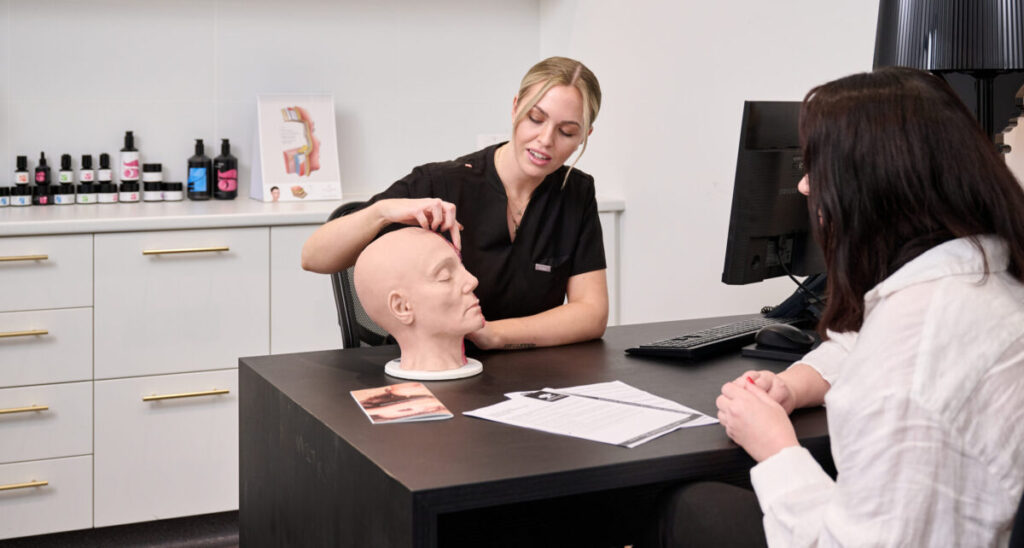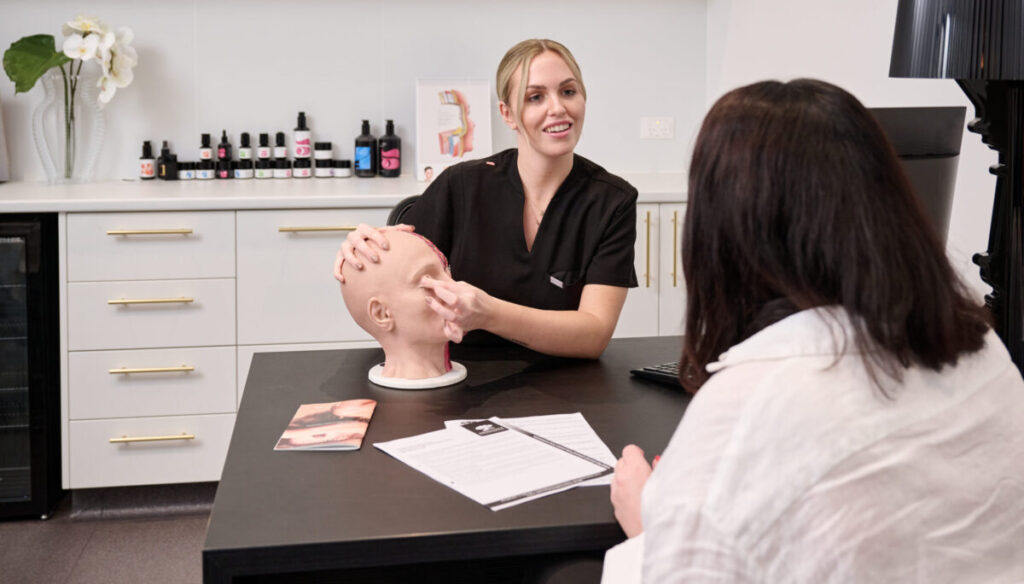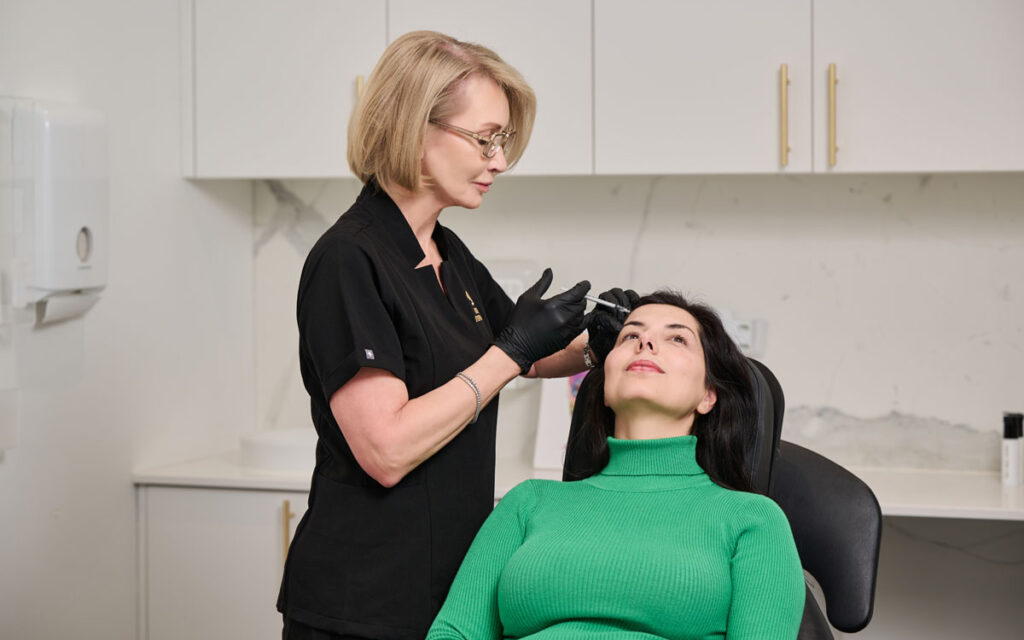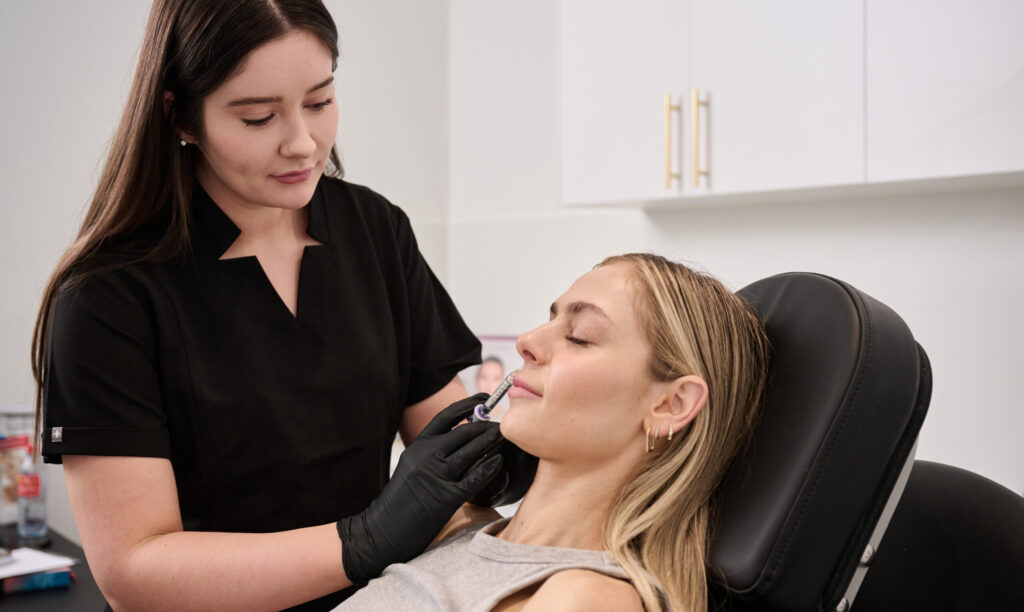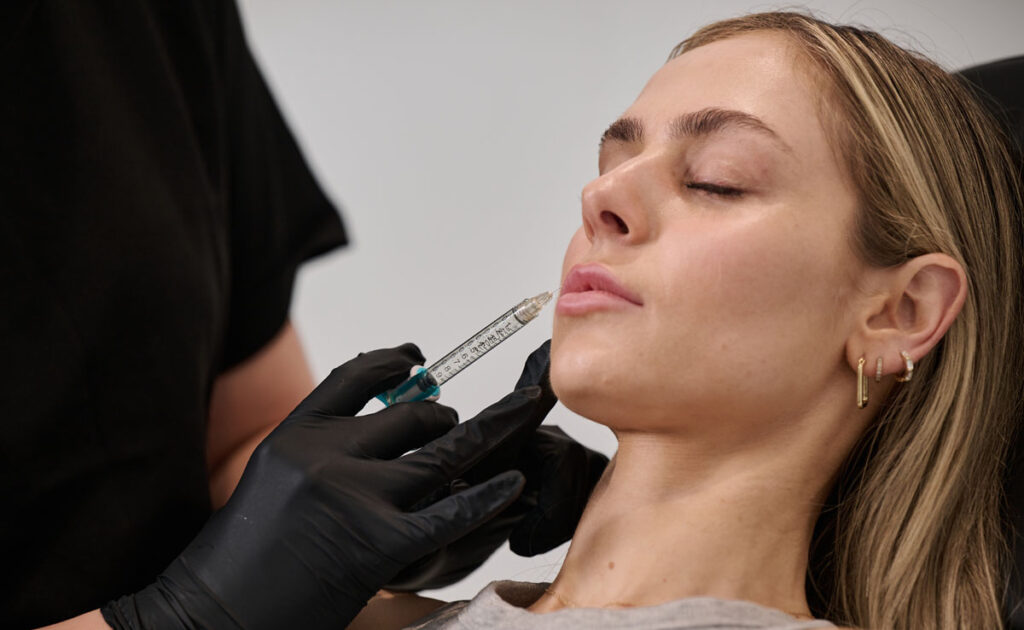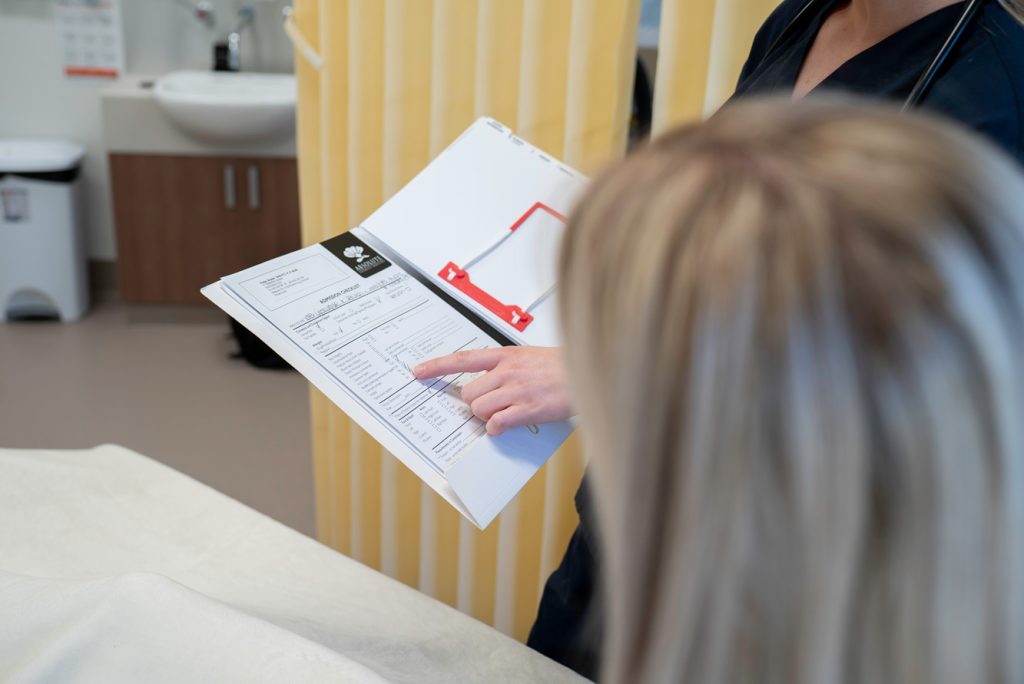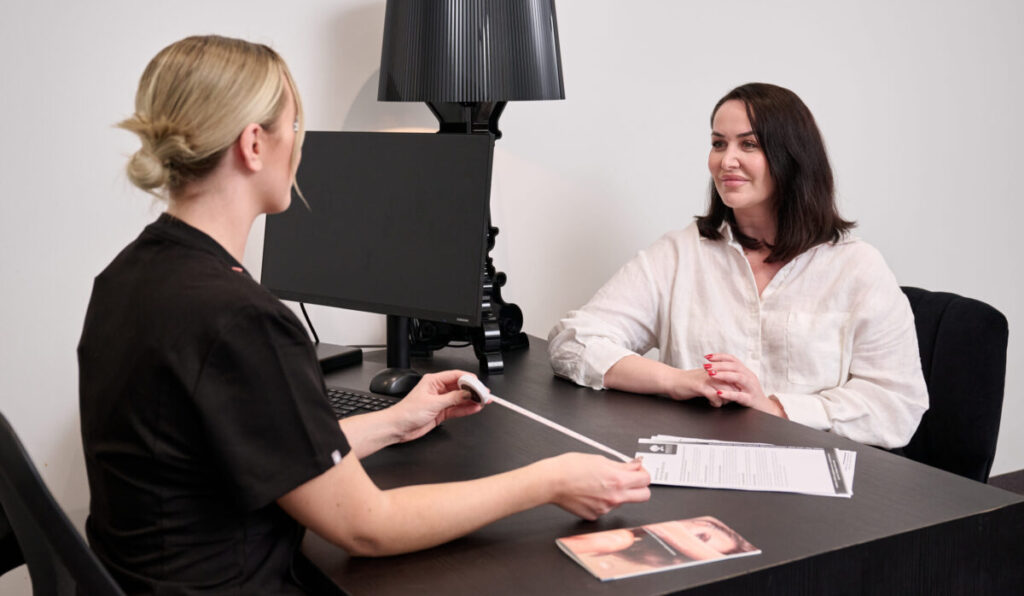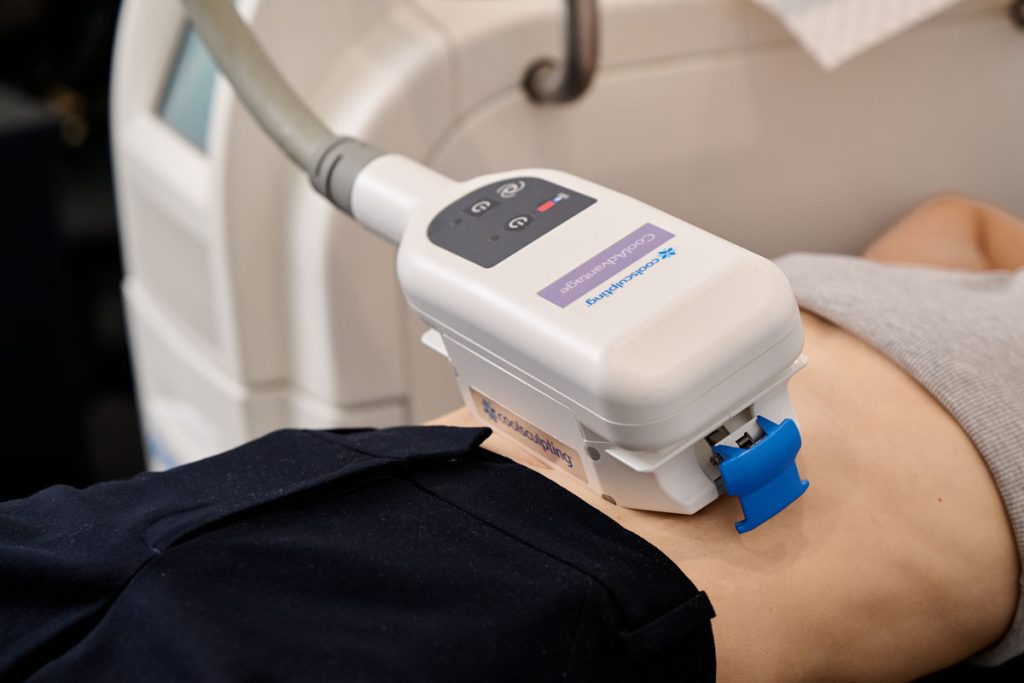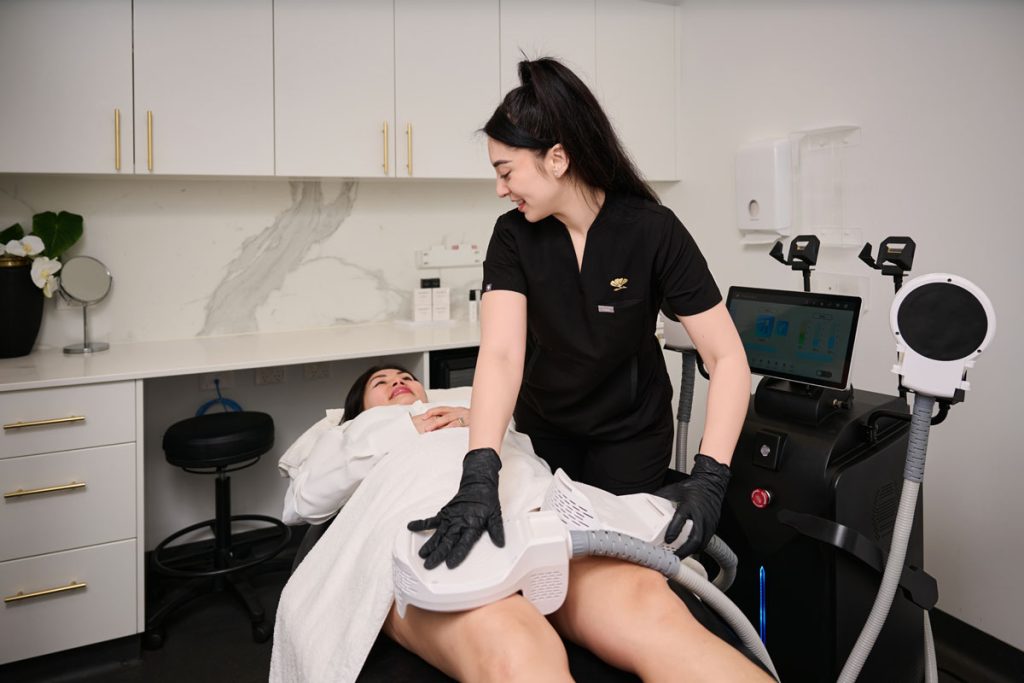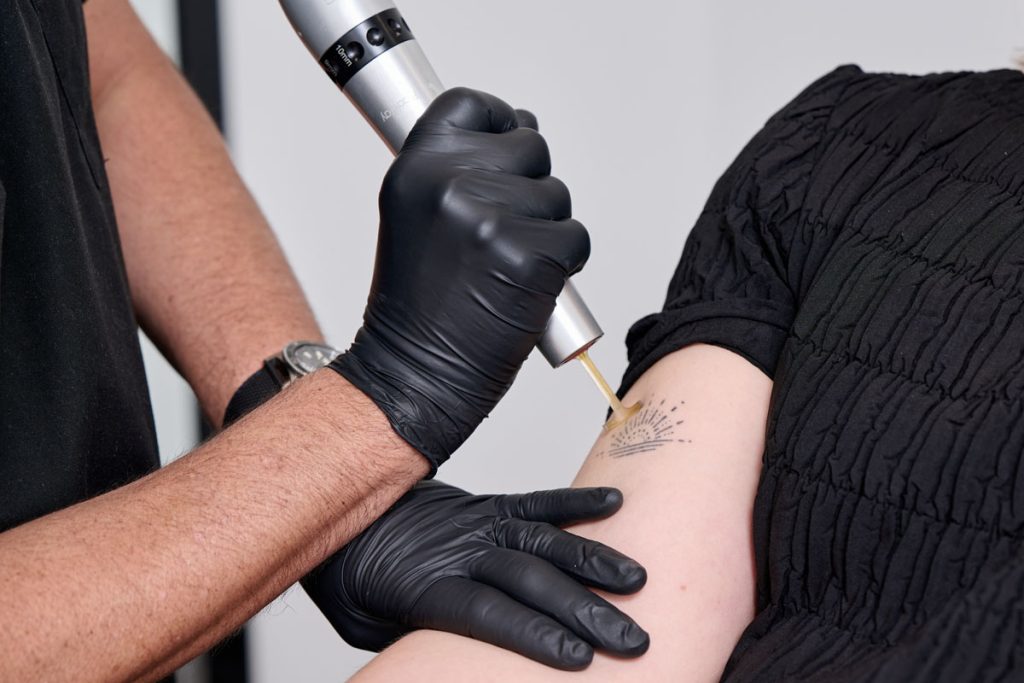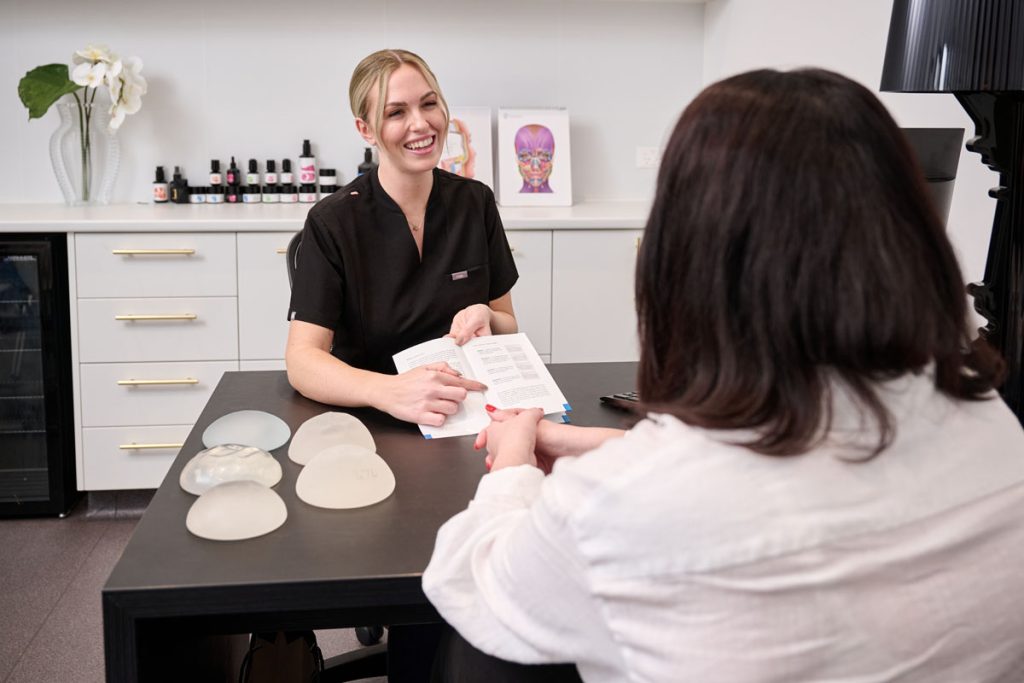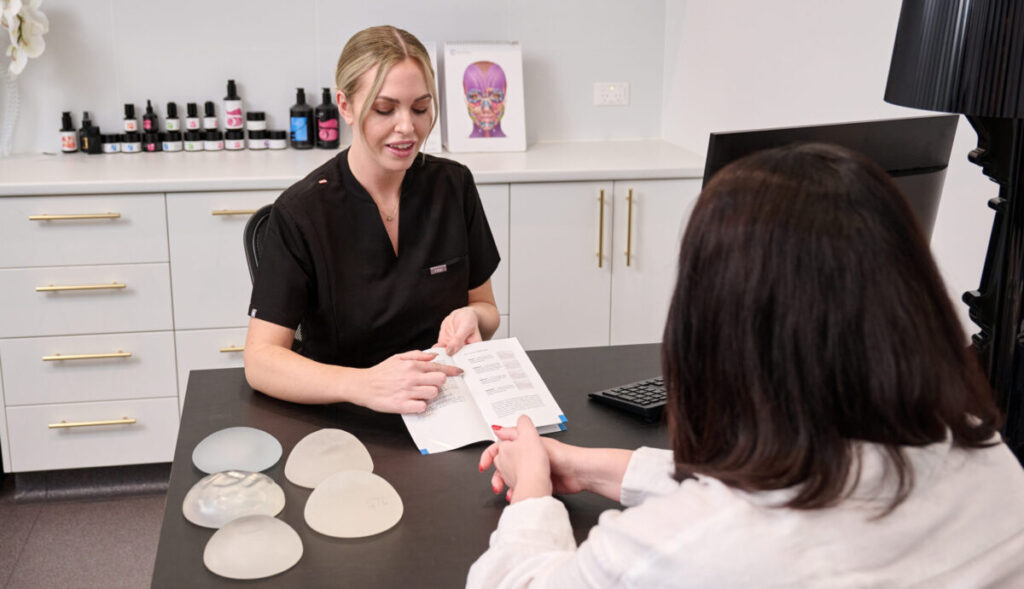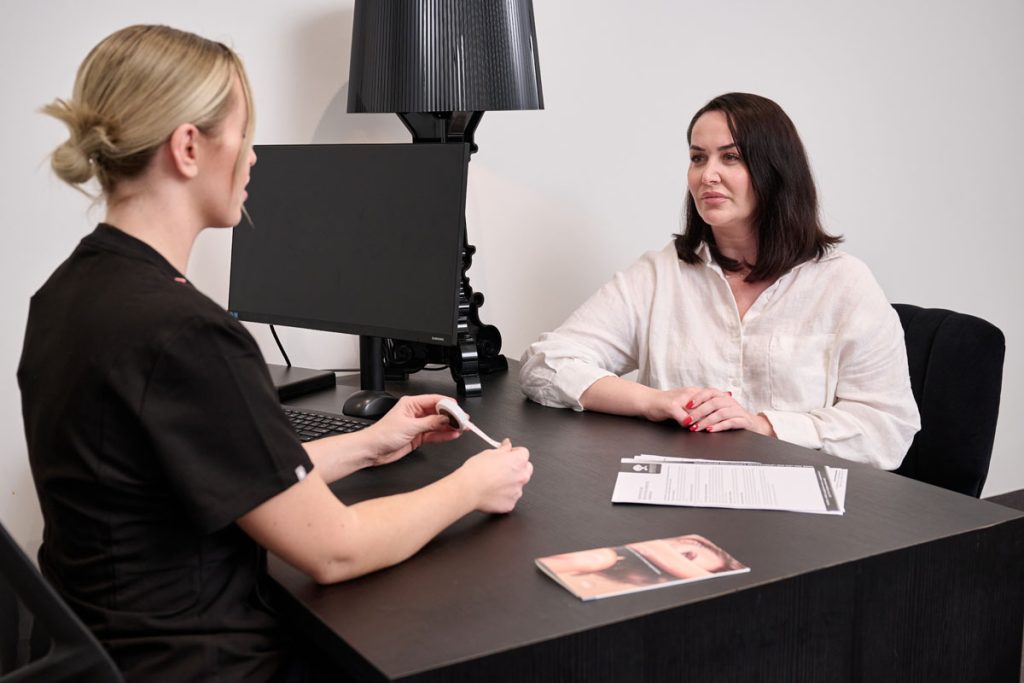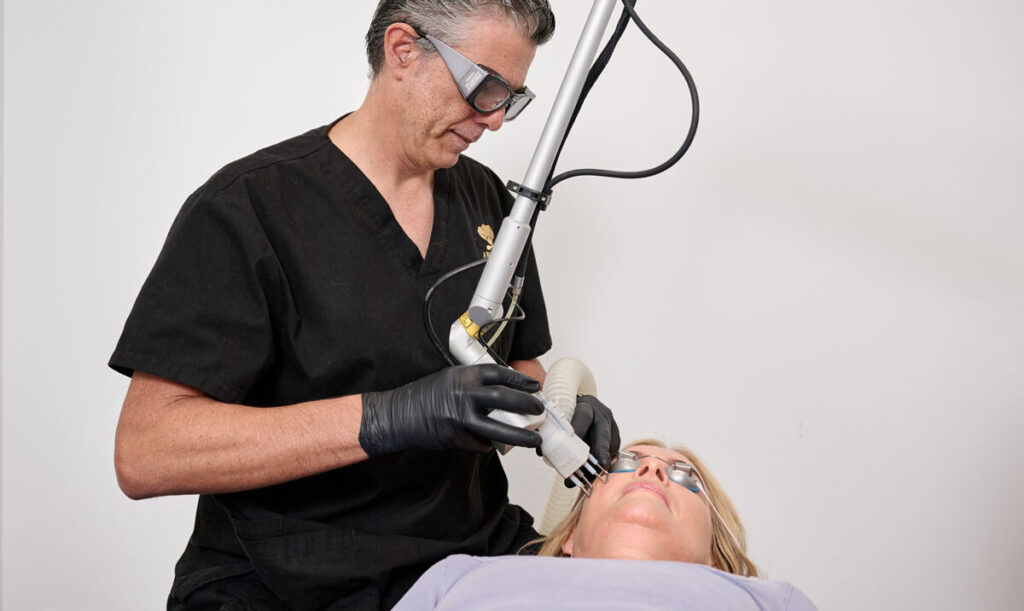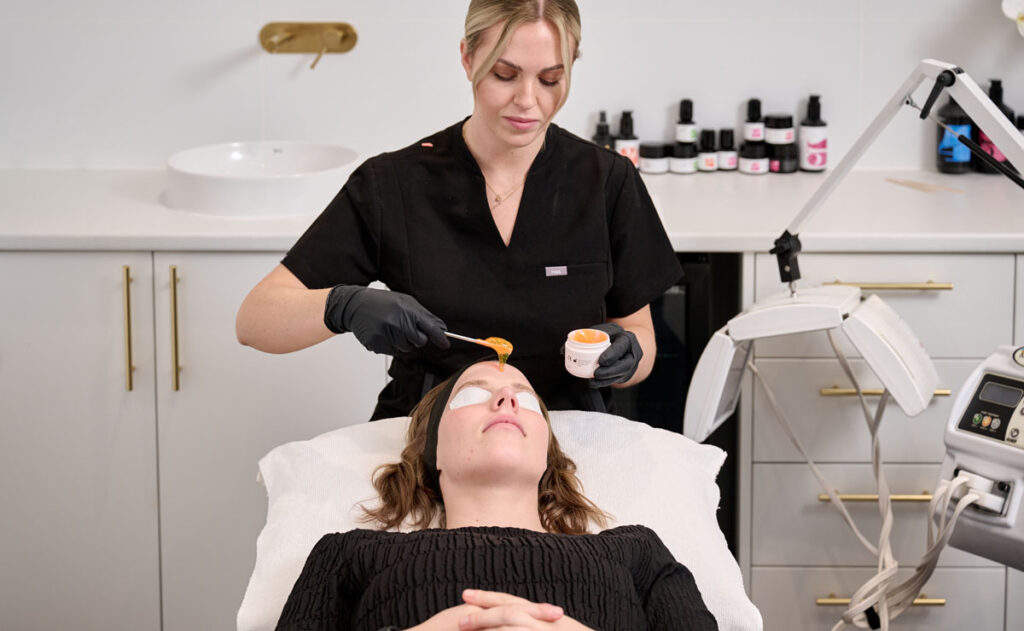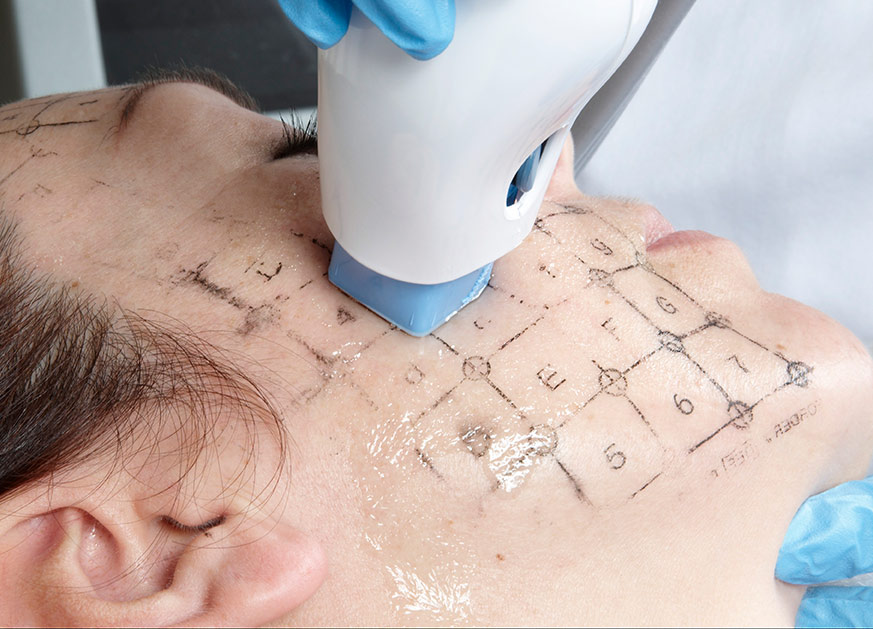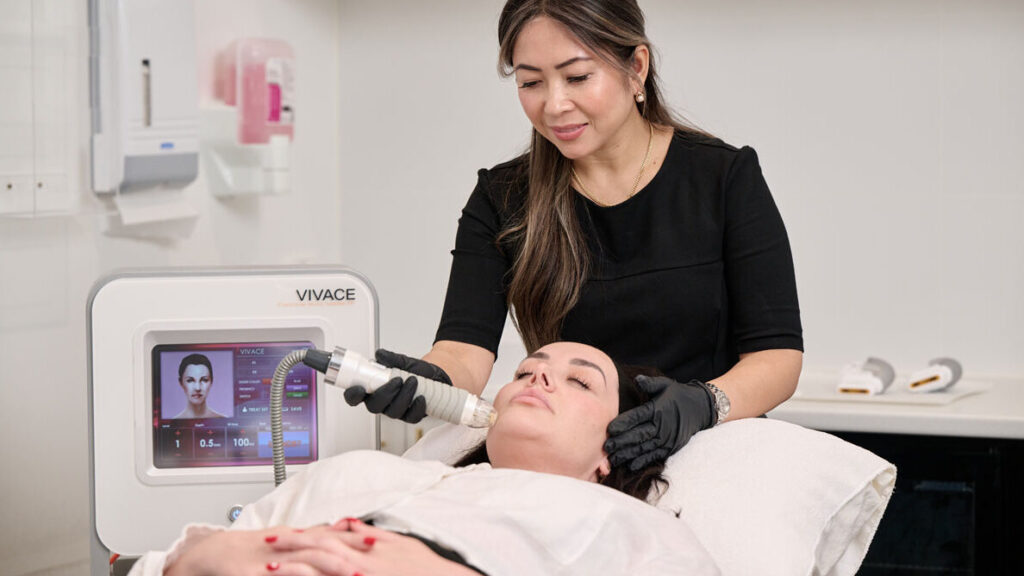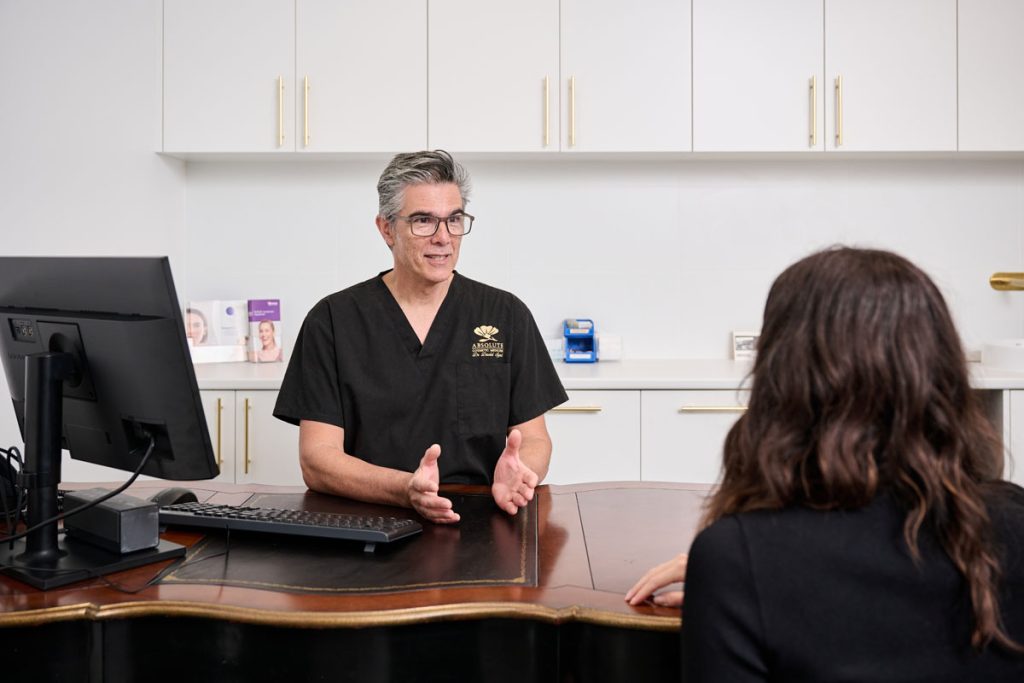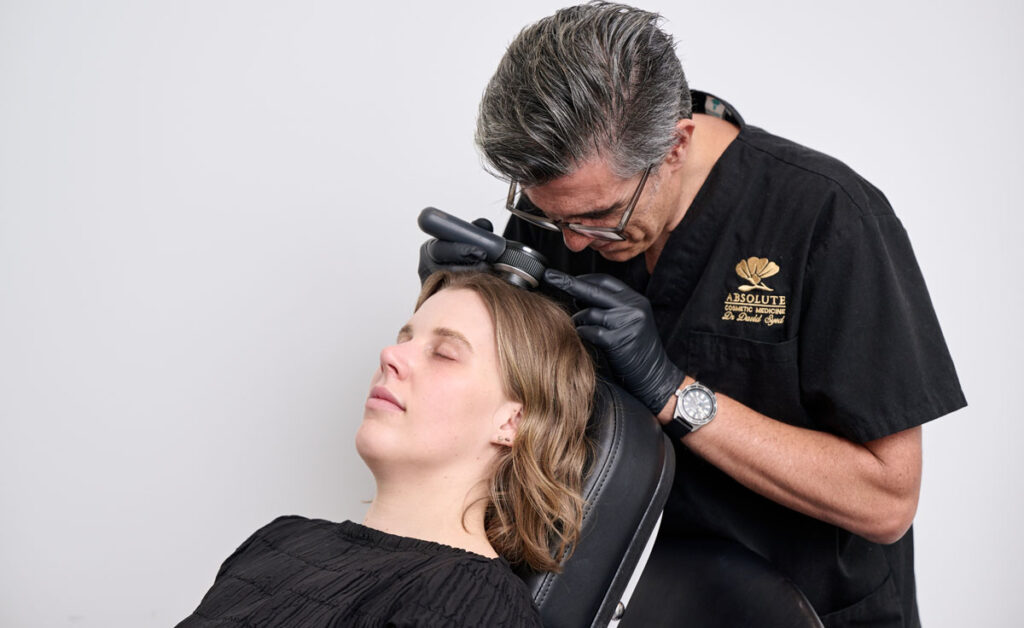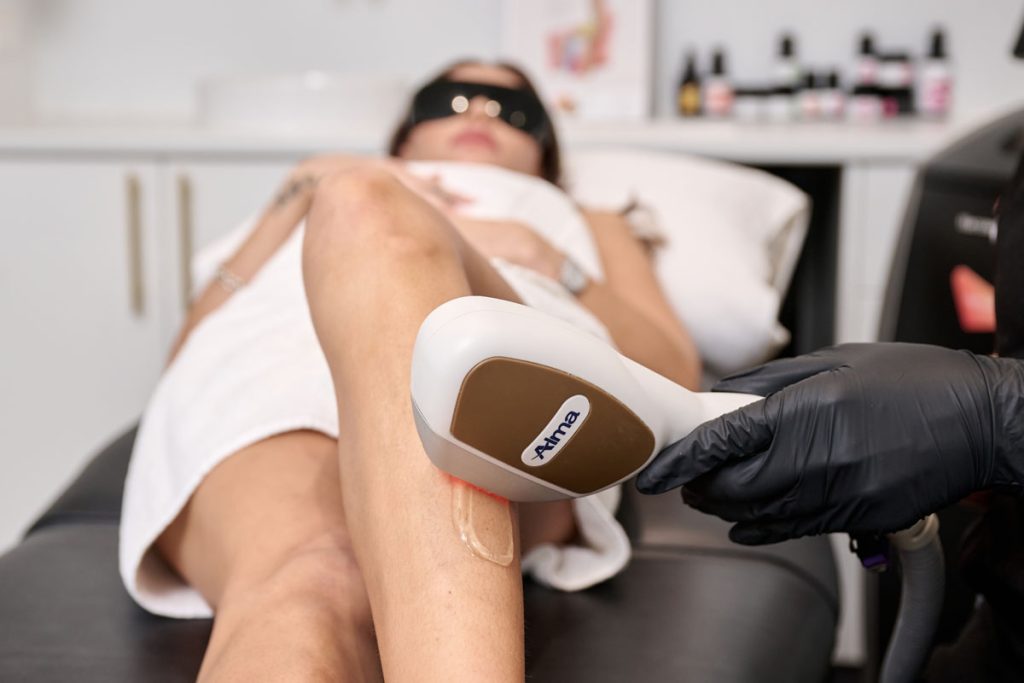- General anaesthesia risks: Dangers in using anaesthesia can be dependent on the type of anaesthesia administered, these may include but not limited to respiratory and cardiac problems, along with allergic reactions. Although most of our procedures have patients undergoing neurolept sedation these risks are still possible.
- Hematoma (bleeding): This involves the accumulation of blood beneath the skin or in muscle, typically minor, yet occasionally it may require surgical intervention.
- Seroma (fluid buildup): Similar to hematoma, this entails fluid collecting under the skin or muscle, typically minor, but occasionally may require an invasive intervention.
- Infection: A serious surgical complication often stemming from bacteria entering through incisions or the bloodstream, potentially causing pain, redness, swelling, warmth, and discharge, and in severe cases, sepsis. It is imperative that you follow clinical advice and aftercare instruction to minimise this risk from occurring, however it may be unavoidable due to other unforeseeable circumstance.
- Delayed wound healing or breakdown: Although uncommon, it is a possibility. Factors like infection, poor blood flow, or smoking can contribute to this issue, resulting in pain, infection, and scarring. This is why we ask that smoking/vaping cease 2 weeks prior to surgery and continues 6 weeks after surgery to aid in recovery.
- Allergic reactions: While rare, undisclosed or allergies that aren’t known to the patient can lead to symptoms such as hives, itching, swelling, and breathing difficulties. It is crucial that you disclose all allergies or sensitivities in your medical history questionnaire.
- Numbness or nerve damage: It is common to feel numbness or some nerve pain straight after surgery. Prolonged feelings of numbness and nerve damage is rare but is a possibility.
- Pain and discomfort: All invasive surgeries will come with a level of pain or discomfort. Tolerances vary from individual to individual but it will improve throughout the recovery period. When extreme pain is experienced, we encourage you to contact Dr Murray directly.
- Swelling, bruising, and skin discoloration: Common post-surgery effects that typically resolve within weeks. However, creams and vitamins can help with this and will be discussed throughout your post operative reviews.
- Abnormal scarring, including hypertrophic or keloid scars: Infrequent yet severe complications, hypertrophic scars are raised and red, while keloid scars are raised, thick, and extend beyond the original wound. If this is to occur, please contact Dr Murray so that further review can be organised.
- Revision surgery for correction or improvement: This may be necessary in cases of complications like infection or bleeding to enhance surgical outcomes. It may also be required for further improvement or refinement of the original procedure.
- Shock or severe blood loss: which may lead to stroke, brain damage or death
- Need for hospitalisation: Although rare, there is a possibility that complications can arise when a patient returns home, and hospitalisation is required. However, all carers are given Dr Murray’s personal mobile phone number to contact who will advise whether this to be appropriate or for you to return to our day surgery clinic for further monitoring.
- Skin necrosis: This occurs when the skin starts to die due to lack of blood flow, infection or disease. Indications of this can be severe pain, fever, elevated heart rate, the skin turning a dark/black colour. This will require surgical intervention that may include excising at the necrotic skin.
- Deep vein thrombosis (DVT): Is a blood clot that can form due to immobilisation, coagulation issues, infection and forms deep in the vein, usually the leg. This blood clot can travel throughout the body causing blockage to vital organs, resulting in death.
- Death: Whilst rare, death is a potential outcome of any surgical procedure.
- Smoking/Vaping or Nicotine Usage: Smoking/Vaping poses significant risks to your cosmetic surgery recovery and outcomes, potentially leading to complications like infection, delayed wound healing, fat depletion, and unfavorable results. It is strongly advised that patients cease smoking at least two weeks before their scheduled surgery and abstain from smoking or vaping for a minimum of six weeks following the procedure.
- Medication Use: It is crucial to disclose all medications, vitamins, and supplements you are taking before surgery. Some medications may interact with anesthesia, increase the risk of bleeding, bruising, and other surgical complications.
- Lifestyle Factors and Substance Use: Certain lifestyle factors, including obesity and poor nutrition, can elevate the risk of surgical complications.
- Wound Care: Proper wound care following surgery, in accordance with your doctor’s instructions, is vital to minimize the risk of infection.
- Weight/Body Mass Index (BMI) and Obesity: Obesity can heighten the likelihood of surgery-related complications, such as breathing difficulties and impaired healing.
- Underlying Health Conditions: Pre-existing health conditions like heart disease or diabetes may increase the risk of surgery-related complications.
- Allergies: Inform your surgeon of any allergies you may have prior to the surgery.
- Sensitivities: Be sure to communicate any sensitivities, such as to latex or specific medications, to your surgeon before the surgery.
- Genetics and Age: Your genetic makeup and age may also be contributing factors influencing your susceptibility to surgical complications.
While elective, cosmetic surgery is not without its inherent risks and potential complications. It is imperative that you conduct thorough research and seek an unbiased second opinion before proceeding with any cosmetic procedure.
We strongly recommend watching our preoperative information videos before your consultation, as they can aid in discussions and prepare you with questions for our clinical team. This proactive approach can help minimize complications, enhance the recovery process, and contribute to the success of your cosmetic procedure.
Following your consultation, you will receive a comprehensive list of potential risks and complications, tailored to your specific procedure. It is essential that you thoroughly review all documentation and adhere to clinical instructions both before and after surgery to mitigate any associated risks.
Understanding that recovery is a journey, it’s crucial to have support and follow appropriate post-surgical care. We will provide you with realistic information about the recovery process, including details on any necessary recovery services such as massages or the use of compression garments. Additionally, we’ll inform you about potential lifestyle changes, such as temporary absence from work or restrictions on certain activities.
Please be aware that in the rare event of complications necessitating additional surgery or hospital admissions, these costs will not be an extra burden for the patient. We advise you to prepare for these unforeseen expenses.
While surgeries and recoveries may not always go as planned, selecting an experienced cosmetic surgeon and undergoing your procedure in an accredited day hospital ensures that you will receive care from a highly skilled medical team in case of any unexpected events, providing peace of mind.
*General disclaimer. Patient outcomes can vary due to factors such as genetics, diet, age, exercise, lifestyle, weight, and overall health. It’s essential to understand that all invasive surgeries come with inherent risks and require a recovery period and specific care regimen. Detailed information regarding surgical risks and complications is available here, but it is advisable to conduct thorough research and obtain a second opinion to ensure you are able to make an informed decision. Please note that the information provided is general in nature and does not constitute medical advice or establish a doctor-patient relationship. For real patient images, please visit our Before and After page. Please be advised that surgical outcomes vary, from patient to patient, and comprehensive research is crucial before making any decisions.

